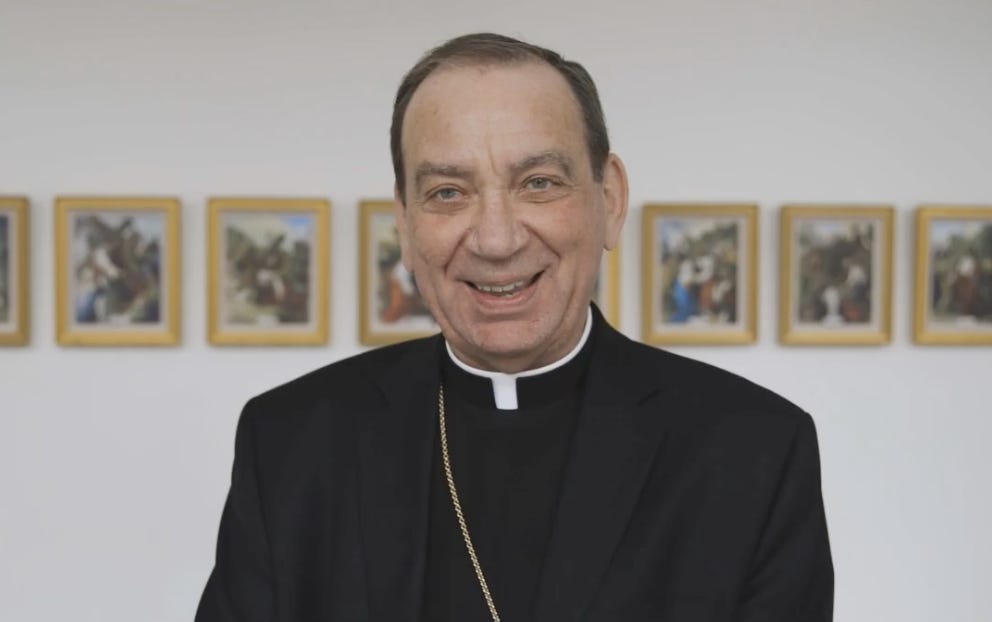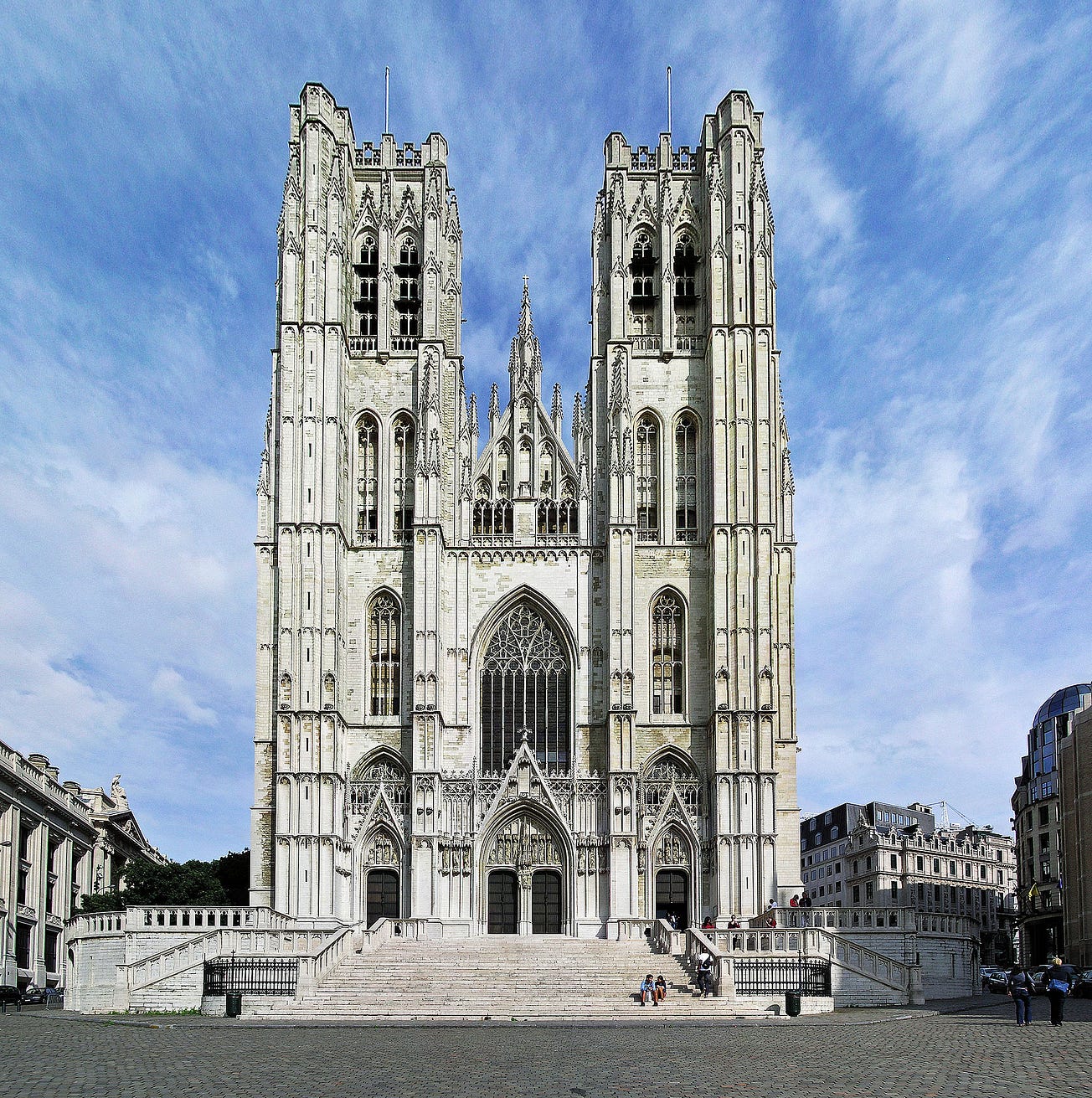Archbishop Dennis Schnurr of Cincinnati did not give permission for his name to be added to a letter that urged a discussion of “Eucharistic coherence” be dropped from the USCCB’s June agenda, a spokesman for the archbishop has told The Pillar.
Schnurr, listed among the letter’s signers anyway, is one of four bishops to distance himself from the May 13 letter since it became public.
The May 13 letter urged that “all Conference wide discussion and committee work on the topic of Eucharistic worthiness and other issues raised by the Holy See be postponed” until the next in-person meeting of the USCCB, currently scheduled for November.
Mike Schafer, communications director in the Archdiocese of Cincinnati, told The Pillar Tuesday that Archbishop Schnurr was approached this spring about a letter being organized to be sent to Gomez.
“While the archbishop did not say ‘no’ to signing such a letter,” Schafer said, “he did say that he would need to see a copy of the text before he could agree to add his name. And he never received a copy of the letter.”
Schnurr was nevertheless listed among the letter’s signatories when it was sent to Gomez May 13.
Several sources close to Archbishop Schnurr separately told The Pillar that the archbishop was “surprised” to discover his name had been added as a signatory without his permission, and that he has expressed frustration about the discovery.
The letter to Gomez was sent on the letterhead of Cardinal Wilton Gregory, who was reportedly one of its principal organizers. The Pillar contacted Wilton’s Archdiocese of Washington for comment on Archbishop Schnurr’s statement, but did not receive a response by time of print.
In addition to Schnurr, other bishops listed as signatories when the letter was sent May 13 have since distanced themselves from it.
Bishop Michael Sis of San Angelo, who was listed as a signatory when the letter was sent May 13, told The Pillar on Tuesday that he had since requested to be disaffiliated from the letter.
“On May 11, I agreed to be a signer of the letter,” Sis told The Pillar by email. “Then, after further reflection, on May 20 I officially asked to have my name removed from the letter, because I believe it would be beneficial for the Doctrine Committee to continue to work on this matter without delay.”
A spokesman for Cardinal Timothy Dolan of New York told The Pillar in May that the cardinal had asked for his name to be removed from among the letter’s signatories after it had been sent to Gomez.
Sources close to Dolan told The Pillar this week that the cardinal had agreed initially to attach his name to a letter that “expressed thanks to Cardinal Ladaria [of the Congregation for the Doctrine of the Faith] for his [recent] letter, and urged collegiality among the conference.”
The sources said Dolan was not shown the final version of the letter and was unaware of its call for a change to the USCCB’s June meeting schedule, which would reportedly contravene conference policies. A spokesperson for Dolan declined to confirm or deny those accounts.
Bishop William Joensen of Des Moines, who was also listed as a signatory, sent a statement to The Pillar on June 7 aiming to clarify his position.
The bishop said he supports the process in place, which would permit the doctrine committee to complete the drafting of a document that would be discussed and voted upon in November.
“I support the process by which the Committee on Doctrine will continue to draft a document that will be taken up by bishops in plenary, in-person meeting this November,” the bishop wrote to The Pillar.
In a May 7 letter, Cardinal Luis Ladaria, the prefect of the Vatican’s doctrinal office, responded to previous communications from Gomez regarding the bishops’ plans to discuss Eucharistic coherence.
Ladaria urged the U.S. bishops to hold a “serene and exhaustive” discussion on the subject, and encouraged them to ensure that the subject of Eucharistic coherence was treated as a whole, and said the debate ought not focus on one topic or class of person, like politicians.
Addressing the controversial issue of admitting to Communion pro-abortion politicians, Ladaria advised Gomez “that dialogue among the bishops be undertaken to preserve the unity of the episcopal conference in the face of disagreements over this controversial topic.”
The bishops should “agree as a Conference that the support of pro-choice legislation is not compatible with Catholic teaching,” Ladaria wrote.
The signers of the May 13 letter told Archbishop Gomez that “high standard of consensus among ourselves and of maintaining unity with the Holy See and the Universal Church as set forth by Cardinal Ladaria is far from being achieved in the present moment.”




